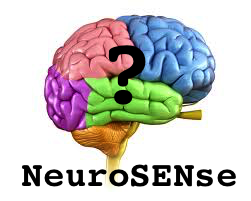Two recent publications from the CEN illustrate how neuroscience methods can be linked to educational outcomes. These papers address, respectively, the implications of changes in brain plasticity for adult education, and why early diagnosed language delay in children sometimes resolves of its own accord and other times persists and requires intervention.
Knowland, V. C. P., & Thomas, M. S. C. (May, 2014). Educating the adult brain: How the neuroscience of learning can inform educational policy. International Review of Education.
Description: “The acquisition of new skills in adulthood can positively affect an individual’s quality of life, including their earning potential. In some cases, such as the learning of literacy in developing countries, it can provide an avenue to escape from poverty. In developed countries, job retraining in adulthood contributes to the flexibility of labour markets. For all adults, learning opportunities increase participation in society and family life. However, the popular view is that adults are less able to learn for an intrinsic reason: their brains are less plastic than in childhood. In this article, we review what is currently known from neuroscience research about how brain plasticity changes with age, with a particular focus on the ability to acquire new skills in adulthood. Anchoring our review in the examples of the adult acquisition of literacy and new motor skills, we address five specific questions: (1) Are sensitive periods in brain development relevant to learning complex educational skills like literacy? (2) Can adults become proficient in a new skill? (3) Can everyone learn equally effectively in adulthood? (4) What is the role of the learning environment? (5) Does adult education cost too much? We identify areas where further research is needed and conclude with a summary of principles for enhancing adult learning now established on a neuroscience foundation.”
Thomas, M. S. C. & Knowland, V. C. P. (April, 2014). Modelling mechanisms of persisting and resolving delay in language development. Journal of Speech, Language, and Hearing Research.
Description: “Purpose: This study employed neural network modeling to investigate the possible mechanistic basis of developmental language delay and test the viability of the hypotheses that persisting delay (PD) and resolving delay (RD) lie on a mechanistic continuum with normal development. Method: A population modeling approach was used to study individual rates of development in 1000 simulated individuals acquiring a notional language domain (here represented by English past tense). Variation was caused by differences in internal neurocomputational learning parameters, as well as the richness of the language environment. An early language delay group was diagnosed and individual trajectories then traced. Results: Quantitative variations in learning mechanisms were sufficient to produce PD and RD subgroups in similar proportions to empirical observations. In the model, persistent language delay was caused by limitations in processing capacity, while resolving delay was caused by low plasticity. Richness of the language environment did not predict the emergence of PD, but did predict the final ability levels of individuals with RD. Conclusion: Mechanistically, it is viable that PD and RD are only quantitatively different. There may be an interaction between environmental factors and outcome groups, with individuals with RD influenced more by the richness of the language environment.”

